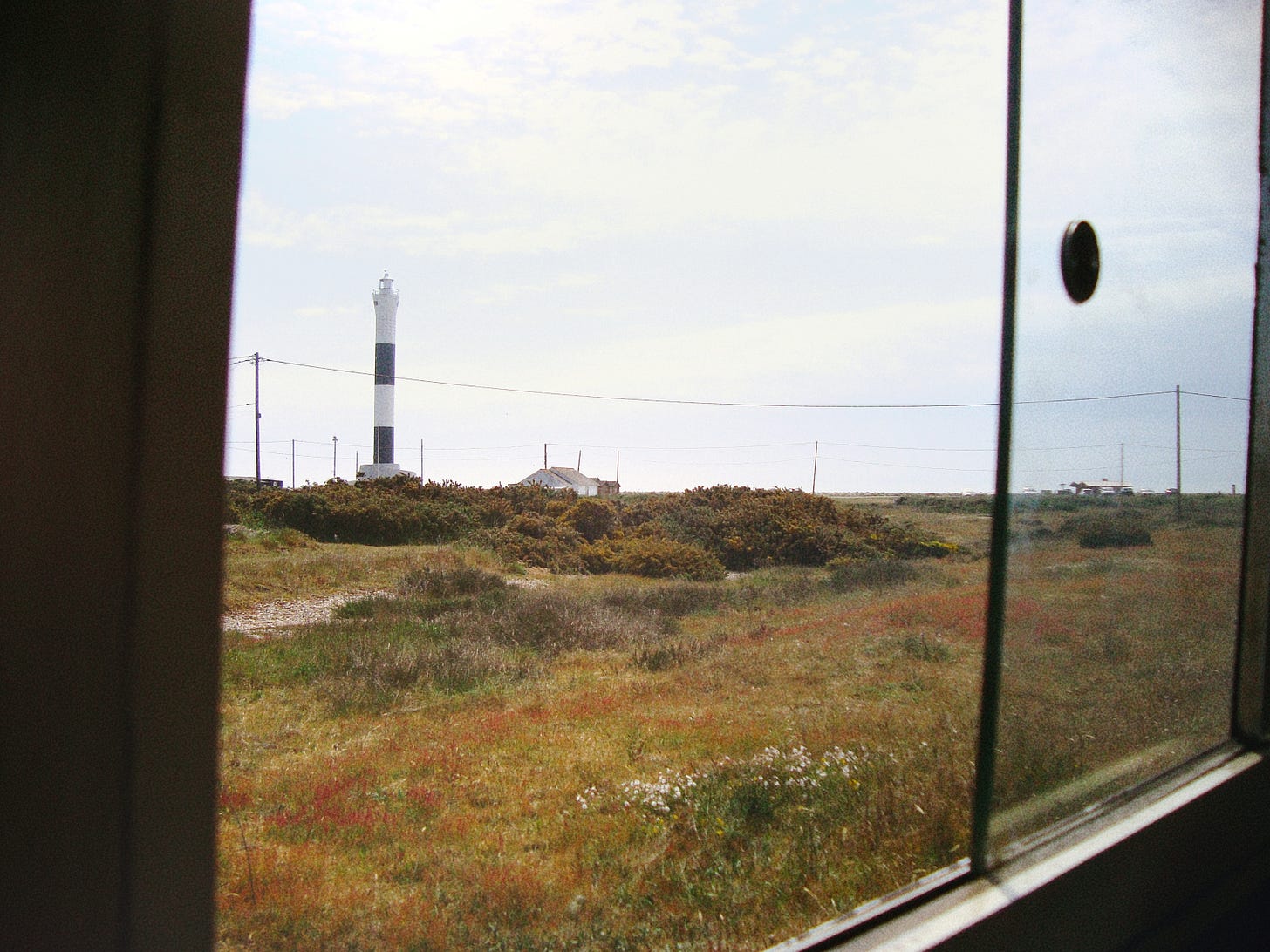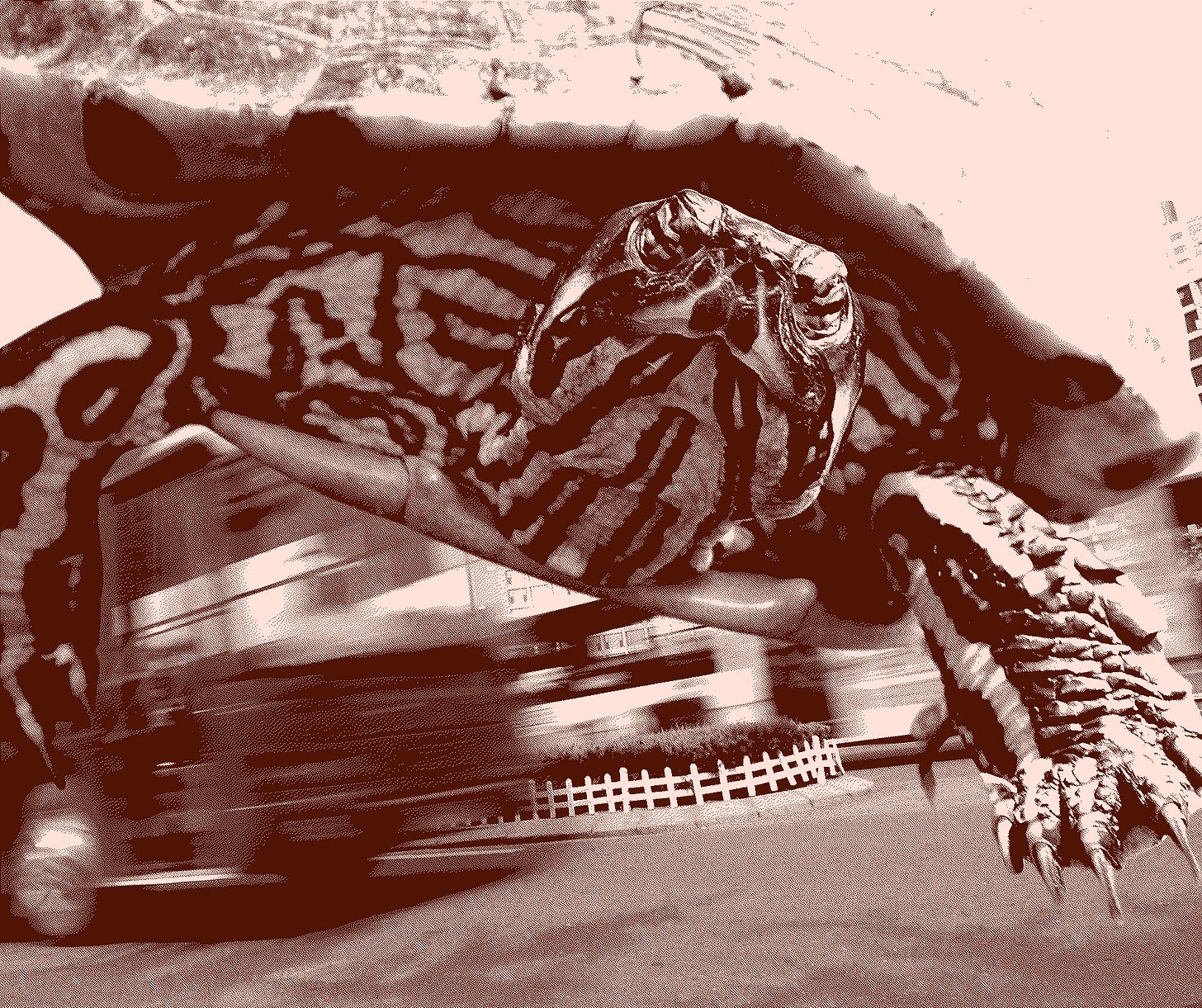Slow is the fastest way to get where you want to be
On going at your own pace in a world geared for hurry
Let me show you a video about speed.
The rabbit loses and the the tortoise wins. The rabbit is confused about where it's supposed to go so it stops halfway through, while the tortoise just keeps going, way past the finish line.
I'm not sure what I'm supposed to learn from this, other than that the fable holds true in real life and that we love to pit things against each other to make a point.
But what if that wasn't the case? Can you imagine a world where we're not eternally competing?
I think there's something huge in that, something about comparison. Because I feel just as concerned about the pace of my career as I do when I compare myself to others. Speed and comparison are two of my biggest antagonists. I watch peers launch their second business while I'm still figuring out my first. See people get featured in content from well-known brands. Some folks I graduated with are already on their third promotion. And I'm not.
My struggle with comparison reminds me of a speech by Finnish-American photographer Arno Minkkinen, in which he uses the Helsinki bus station as a metaphor for creative growth (although it can be stretched to include professional growth as well).
Like artists who start by emulating their influences, all buses initially follow the same route before branching to unique destinations. Some people panic at this resemblance and get off the bus to start over elsewhere, never reaching the crucial juncture where original work emerges. Minkkinen's advice is clear. "Stay on the bus. Stay on the fucking bus." Persistence through the imitative phase is the key to your breakthrough.
"At the end of the line, where the bus comes to rest and the driver can get out for a smoke or better yet a cup of coffee, that’s when the work is done. It could be the end of your career as an artist or the end of your life for that matter, but your total output is now all there before you, the early (so-called) imitations, the breakthroughs, the peaks and valleys, the closing masterpieces, all with the stamp of your unique vision. Why? Because you stayed on the bus."
– Arno Rafael Minkkinen, Finding Your Own Vision
What Minkkinen doesn't seem to acknowledge is that staying on the bus is double hard when everyone else seems to be moving faster, zooming past you in the career equivalent of a Eurostar.
I've been thinking about buses and turtles because I'm going through a weird transition. Join the fucking club. For the record, leading up to and after my redundancy two years ago, I spent many miserable months looking for a job in a brutal market. No luck... until I finally pivoted. I took a part-time job in a café and started freelancing alongside it as a virtual assistant.
After my first client, I realised I was never interested in being a virtual assistant. Sure, I like the behind-the-scenes stuff, the tell-me-what-to-do-and-I'll-do-it work. But at heart, I design and write. I draw on my empathy and experience to help people with their websites and emails. What's the point in holding back? Why beat around the bush?
Looking back, I've largely made choices based on what I've seen others do. I got a degree in digital arts in my mid-twenties. Before that, I played the guitar in local bands, produced electronic music and shot gig photography. And I don't know how to make sense of this properly but I got into music when I was surrounded by musicians. Net art when I studied it at university. Photography after getting obsessed with some amazing photographers on Instagram. And more recently poetry because I started reading a lot of it.
I kept jumping between things. Sure, it was sometimes in response to curiosity. But I often did it because I craved predictability, so I followed people's advice instead of finding my own answers. Once I started freelancing, though, I knew that just responding to outside influences wouldn't be enough to build the business I wanted. I needed to move with more...care? Intention?
My reluctance to follow any path resembling a traditionally structured career is nothing new. I'd love a more predictable life, but I have no idea what that would actually involve. Perhaps it's because I grew up with an irascible and bullying dad. Or maybe it's got something to do with not coming out until I was 21, and how I lived in my warped reality until then. Then again, it could be my undiagnosed ADHD (probably that, to be honest). Either way, I've learned to thrive off the dopamine I get from times of crisis and uncertainty.
But you can't run on that forever. Deep beneath the layers of executive functioning, I know this well and I’m trying to change. I have to say though, as someone who’s on the spectrum, I feel lucky to be able to live AND appreciate a rich and multifaceted life. I’m a generalist not because I want to avoid effort (I work very hard under the right conditions) but because I find it difficult to give one hundred per cent to one thing at a time.
Before I lose my train of thought, remember when I mentioned how something felt off about how I positioned my business?
I did one thing about it in the last couple of months—which is also why I paused this newsletter for a while. I took nevernotready through a radical rebrand and website rewrite/redesign. I struggled a lot on how to position Francesco within the container that’s nevernotready and I’m so glad to be out on the other side (until the next shift, of course). Reaching this milestone felt good. I have total control over my website now, but more than that, I also have the answers to some tough questions, like: How transparent should I be about my rates? How late is too late to be brought into a project? What sacrifices am I willing to make? How fast am I prepared to go?
Not long ago, I read a passage from
’s essay on meaningful work which said “once you accept the hard truth that building a career and earning money is not the everlasting source of happiness and meaning you believed it would be, you can start to look outside the box you built for yourself.” That’s the kind of change I think I’m going through now.Similarly, as Oliver Burkeman wrote in a book that I’ve definitely read, “in a world geared for hurry, the capacity to resist the urge to hurry—to allow things to take the time they take—is a way to gain purchase on the world, to do the work that counts, and to derive satisfaction from the doing itself, instead of deferring all your fulfilment to the future.”
Just as I started writing this essay without knowing where it would end up, I started freelancing without knowing how it would turn out. I’m now peeking outside the box I built at the beginning to keep me safe. I’m exploring and making mistakes. Working towards a career I can be proud of, but doing it slowly and with my feet pretty close to the ground as I learn to enjoy what there is to enjoy.
It’s not always easy to remember this, though, and there are definitely days when I lose perspective and start spiralling. But I'm thinking of yoga and how it has taught me one thing: when it's hard to find balance, find something to focus your eyes on.
The point of focus here is that the turtle doesn't win. Nobody wins in this race because there is no true finish line, if not death. The turtle remains my spirit animal because they're totally unbothered by everything and everyone. But they're different creatures anyway, on different journeys, at different speeds. Which should encourage us to stop trying to beat others to some imaginary milestone. The shortest path is to keep moving at your own speed, even when—and especially when—everyone else seems to be zooming past.
Here at the bottom you will find the❤️, which you can click if you liked this piece.
You can also share it with others who might appreciate it.
Read more
In a recent episode of their podcast,
and talk about the exact kind of struggle I faced when it came to pivoting from VA to designer/copywriter. Go and listen to it if you too are struggling with the whole idea of change in your business and how to use your marketing to make sense of it.Of course, this eye-opening post by
.“We put all our stock in the idea that specializing in one field, industry, or competency—one that almost always occurs within the confines of a screen—in exchange for a steadily-increasing paycheck was the smart move to make. We accepted that we better get really, really good at it if we wanted to command the kinds of salaries that keep us afloat in this system, so we worked until the point of burnout to deliver to companies we thought would love us back. Or at the very least, not fire us the very moment there was a marginally cheaper way of doing things.” A quote that sends shivers down my spine from this essay by
, reading which helped answer some of the hard questions like “what sacrifices am I prepared to make to do the kind of meaningful work I want to do?” that I mentioned above.







🐢! This was so thoughtfully written. And thank you for listening to that episode of Off the Grid 🥲